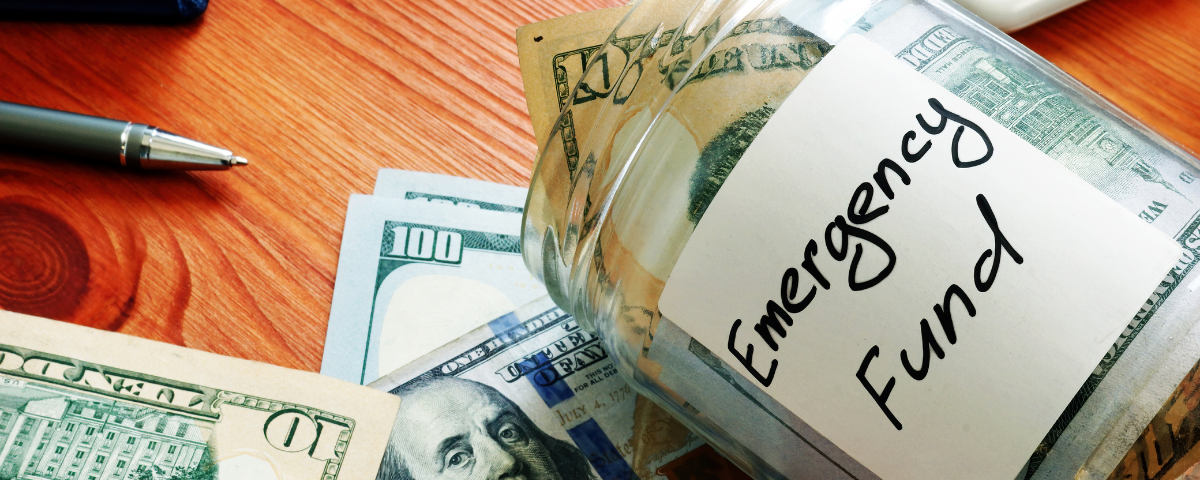If you’re spending more than you earn, you’re going to have a hard time saving for your financial goals. And if you’re having to spend all your time working to pay the bills, you’re likely to burn out. That’s why you need to have an emergency fund. It should be enough to cover at least six months of expenses. If you have health insurance, use that to calculate how much you need. Many people don’t have the money to cover a major expense without massive debt, which can be disastrous.
Having an emergency fund can provide financial stability in various situations beyond just covering unexpected expenses. It can serve as a safety net during a job loss or income interruption, allowing you to maintain your standard of living while you search for new employment or alternative sources of income. An emergency fund can also help you avoid taking on high-interest debt or dipping into retirement savings, which could have long-term consequences.
Speaking of retirement, an emergency fund can be beneficial even after you’ve stopped working. Unexpected expenses can arise at any stage of life, and having a separate fund dedicated to emergencies can help protect your retirement savings from being depleted prematurely. This added financial cushion can provide peace of mind and allow you to enjoy your retirement years without worrying about unexpected setbacks.
As you find ways to enjoy your retirement, it’s also important to think of various senior living options that you might need as you age. From independent communities to assisted living facilities similar to this benchmark at haverhill crossings or wherever you prefer, having an emergency fund can give you the flexibility to make choices that best suit your circumstances and healthcare needs without being overly constrained by financial limitations.
Furthermore, an emergency fund can be a valuable resource for covering potential long-term care costs or making modifications to your living space as you age, ensuring that you can age in place comfortably or transition to a more suitable environment if needed. Hence, this post will introduce you to strategies and techniques to help you save money to prepare for future expenses and establish an emergency fund.
Have a Separate Savings Account
Maintaining a separate savings account can be a wise financial move to save for upcoming expenses and create an emergency fund. In fact, actually a common practice for many people to establish an emergency fund. All you need to do is open a savings account with a reliable financial company and set up automatic monthly contributions. Before taking this step, it’s crucial to do your homework and select a financial company similar to ATMOS Financial (which can be reached through https://www.joinatmos.com/savings) that typically offers competitive interest rates or incentives to help you maximize your savings.
By keeping these funds separate from everyday spending, you can easily track your savings progress and avoid using the money for unnecessary purchases. This dedicated account acts as a designated space to allocate funds for specific goals like a vacation, home improvement project, or unexpected financial needs. Moreover, having a separate savings account facilitates monitoring progress towards these goals and ensures that funds are readily accessible when required. Whether saving for planned expenses or preparing for unforeseen emergencies, having a separate savings account promotes disciplined financial management and brings peace of mind.
Direct your Extra Money Into Your Savings Account
If you’re operating on a tight budget, you probably don’t have much in the way of savings. That’s why it’s a good idea to funnel extra money into a savings account to help you get back on your feet. All of us have experienced a financial emergency in our lives. Whether it is a surprise job loss, a medical emergency, or a major car repair, that might require you to take your car to somewhere similar to auto service Arvada CO or one possibly closer to your hometown, this could be expensive which is why it is very important to have an emergency fund that can get us through these times.
The biggest hurdle to building an emergency fund is that most people have a very narrow view of an emergency. We tend to think that an emergency is something that only happens to other people. But the truth is that financial emergencies are just as common to us as life emergencies.
Break down savings goal to an achievable way
To make it easier to reach our financial goals, we recently created a savings/emergency fund calculator on our finance blog. The tool puts the odds in our favor by helping us create a step-by-step plan. However, it assumes you already know about using compound interest, the concept of savings, and the importance of having a rainy-day fund.
Although we believe in the importance of saving money, we’ve noticed that there’s a common misconception that the only way to accumulate a money cushion for an emergency is by saving for decades so that you have something in the bank. But this is not the case: anyone can set aside money for an emergency in the form of a savings account, where it is immediately accessible and earning interest. In fact, with many types of accounts, you can earn interest on your money as soon as you deposit it. Plus, if you are diligent about your savings, you can build up quite a cushion over time.
You have a great plan to start saving money to be put aside for a rainy day. But as you take steps to take that, you realize that you need more control over your finances. That’s when you start to think, “I can’t save up enough money this month. I need to break my goal down into smaller steps.” Having a step-by-step plan helps you hold yourself accountable since you know exactly what you need to do.
For starters, you can start saving towards goals such as retirement or emergency healthcare. Let us look at this with a simple example; when you’re much older, maybe after retirement, the chances are high that you will develop some sickness, ailment, or disease. Some of these can, indeed, be taken care of at home. But others may not be as forgiving, often requiring the assistance of professionals specialized in at-home care, perhaps with the help of those at Care For Family – Your Trusted In-Home Care Provider.
Likewise, you should save towards medical emergencies. These can get notoriously hard to predict, and can leave you financially crippled if you’re unprepared. Whether it be an accident on the road, the diagnosis of a disease, or a full-fledged emergency treatment, healthcare tends to get expensive, so you should plan your savings accordingly.
If the savings money isn’t good enough, you can look for other options such as instant loans. Look for a quick and easy way to get instant cash loans, check the eligibility criteria and get your required money. However, do some financial planning for the future and save some money.
So, you’re at the age where you’re starting to think about retirement and how much money you’ll have once you’re no longer on the job. It’s a good time to start thinking about saving up for an emergency fund. A financial advisor will tell you that one of the best ways to prepare for emergencies is to have a good amount of savings in a fixed income retirement account. This is a great idea, but a lot of people have trouble getting started. How about you start by spending the next five minutes? The more you save in a retirement account, the better you will feel when something bad happens. The financial planner’s advice is correct, but there is a more important reason to start saving up an emergency fund.



